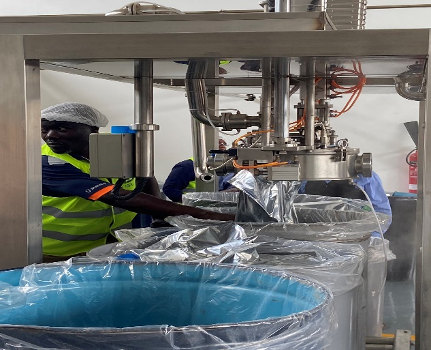Soroti Fruit Factory
The Soroti Fruit Factory is an important player in Uganda’s agricultural sector, specializing in processing oranges and mangoes into ready-to-drink juices and puree/concentrates. The factory, located in Soroti District, was established through a partnership between the Government of Uganda and the Government of South Korea to increase local value addition to the abundant fruits in the Teso sub-region. The factory that is owned by the Uganda Development Corporation and the farmers through the Teso Tropical Fruits Cooperative Union Limited (TEFCU), has since its commissioning in 2019, offered a reliable market for farmer produce, created both direct and indirect jobs, boosted exports, and improved the livelihoods of local communities.

Horyal Investment Holding Company Ltd (Atiak Sugar Factory)
The Atiak Sugar Factory, situated in Atiak, Amuru District, is a beacon of hope for the region. With the strategic support of the Uganda Development Corporation (UDC), the factory is driving a remarkable transformation, that will uplift the lives of those who bore the brunt of the conflict in Northern Uganda. With an initial production capacity of 1,650 tons of cane crushed per day, the factory stands as a symbol of the government’s commitment to revitalizing post-conflict Northern Uganda. Furthermore, UDC’s procurement of farm mechanization equipment is set to revolutionize farm productivity, ensuring a prosperous future for the region.
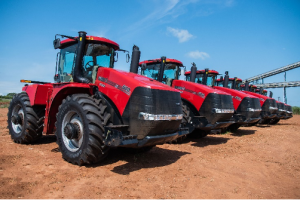
Bukona Agro Processors Ltd
Located in Lapem Village, Koch-Goma Sub County, Nwoya District, Bukona Agro Processing Ltd is at the forefront of manufacturing denatured ethanol, a sustainable green fuel for cooking. Derived from locally grown cassava, maize, and sorghum, Bukona provides a lucrative market for smallholder farmers produce in the northern region of Uganda. UDC’s strategic intervention in 2012, was geared at boosting the factory’s production capacity, which in turn would provide a reliable market for farmer produce. The factory has since, extended its product line to production of energy-efficient cooking stoves designed to harness the power of ethanol.
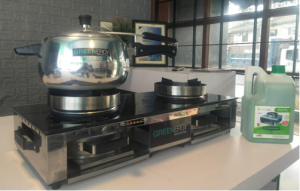
Mutuma Commercial Agencies
Mutuma Commercial Agencies (MCAL) in Luuka District, Busoga Sub-region is a zero-discharge factory, renowned for producing top-tier absorbent cotton wool under the brand “Pearl Cotton wool”. Since its establishment in 1999, the company has partnered with over 6,000 farmers, who supply conventional seed cotton for processing into high-quality absorbent cotton wool. Additionally, the company produces cotton seed oil, cotton seed cake, soap stock, and cotton husks. Thanks to UDC’s timely intervention in 2020, the factory received a new lease of life and is now providing a reliable market for farm produce thus significantly uplifted the livelihoods of the farmer community.
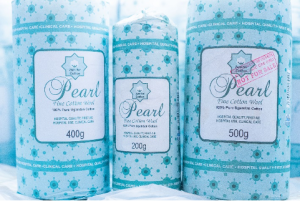
Kigezi Highland Tea Ltd
Kigezi Highland Tea Factory, located in Kabale and Kisoro Districts, is known for producing high-quality black tea. In 2019, UDC formed a lease financing partnership with Kigezi Highland Tea Ltd to establish two tea factories in the Kigezi sub-region installed with Cut, Tear and Curl (CTC) machinery of 450 kilograms per hour production capacity. This initiative was driven by governments need to provide farmers with reliable market for their tea that will in turn have a social economic impact in the region. The black tea produced is sold at the Mombasa Tea Auction.
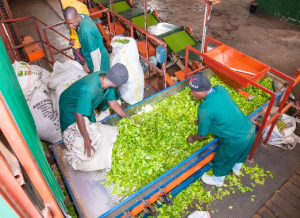
Kayonza Growers Tea Ltd
In response to the increased tea production in Kanungu, the Uganda Development Corporation installed a third 600 kg/hr CTC line at the Kayonza Growers Tea factory through a lease financing arrangement. This upgrade aims to enhance the factory’s productivity and efficiency, as well as to boost the company’s competitiveness in the tea industry. As a result, there has been a greater uptake of raw materials from local tea farmers in the region.
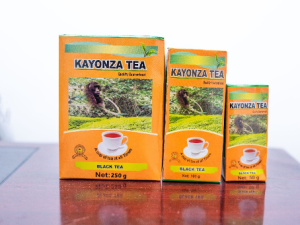
Mpanga Growers Tea Factory Ltd
Established in 1995, Mpanga Growers Tea Factory Ltd is a public limited company owned by smallholder farmers in Kabarole District. The company faced challenges of insufficient working capital, which grossly slowed down its operations. Thanks to UDC’s timely intervention in 2021, the company’s production capacity was bolstered, enabling the factory to produce high-quality black tea for export at the Mombasa Tea Auction. This partnership not only transformed the company’s fortunes but also empowered local farmers and contributed to the growth of the tea industry.
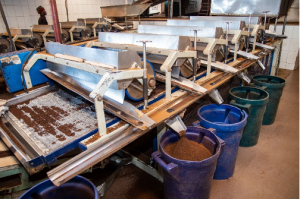
Mabale Growers Tea Factory Ltd.
Mabale Growers Tea Ltd, located in Kyenjojo District within the Tooro sub-region, specializes in processing green leaf in to black tea primarily sold at the Mombasa Tea Auction. UDC’s intervention in 2019, was crucial in preventing the company from collapsing due to insufficient working capital, enabling a significant increase in the uptake of green leaf from local tea farmers and enhancing its overall productivity
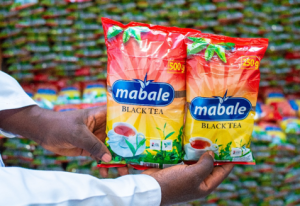
Budadiri Arabica Coffee Factory Ltd.
The Budadiri Arabica Coffee Mills Ltd (BACFL) first incorporated in September 1988, is located in Bugisu- Sironko district. The factory engages in coffee processing, (curing, grading, and packing) destined for the export market. UDC’s strategic intervention helped revitalize the factory’s commercial operations creating numerous direct and indirect jobs opportunities. This has not only boosted Uganda’s foreign exchange earnings but also provided a reliable market for smallholder coffee farmers in the region.
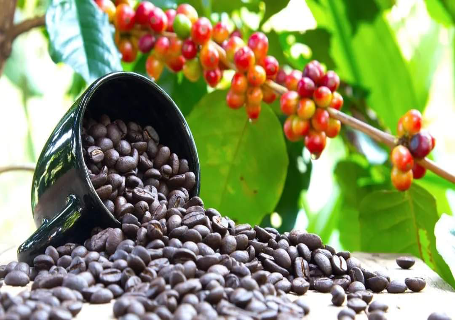
Nilezilla Ltd (Yumbe Fruit Factory)
The Nilezilla Ltd is a mango fruit pulp processing factory located in Yumbe District. The company, popularly referred to as the Yumbe Fruit Factory, is a Public-Private Partnership between the government (UDC), scientists (Foods and Nutrition Solutions Limited (FONUS), and farmers (Aringa Fruit Farmers’ Cooperative Society). The factory processes the indigenous ‘kagoggwa’ mango variety, demonstrating that scientific research can be transformed into commercial products. This venture is aligned with the Uganda government’s commitment to transforming agriculture into a commercially viable sector, generating employment opportunities, and increasing farmers’ income. The factory’s presence has already begun to impact the social and economic livelihood of the people in the West Nile region.
